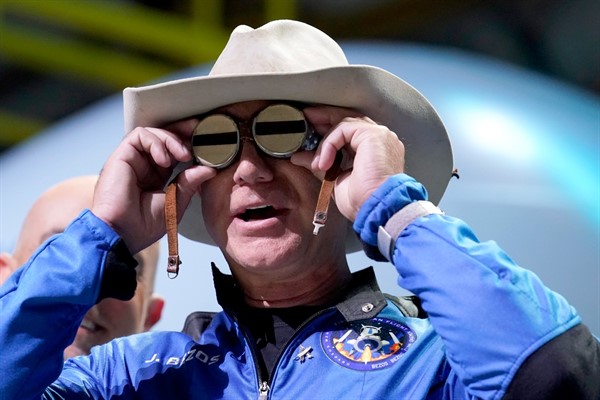Last week, the world’s richest man, Jeff Bezos, journeyed to the edge of space in a Blue Origin rocket christened the New Shepard. Bezos’ trip came only nine days after his fellow billionaire Richard Branson had done the same in a Virgin Galactic space plane.
So, what else is new? Wealthy industrialists have always enjoyed building themselves expensive toys. Think Howard Hughes and his Spruce Goose. What sets these voyages apart is their techno-utopianism. Bezos and Branson, along with Space X founder Elon Musk, are the modern avatars of Icarus. They believe that humanity’s destiny lies not on terra firma but in the heavens—and that exploring, exploiting and ultimately colonizing the solar system offers our species its best and perhaps only chance to escape our Earth-bound problems.
They are not alone. As the author Daniel Deudney explains in an extraordinary new book, “Dark Skies: Space Expansionism, Planetary Geopolitics, and the Ends of Humanity,” the world is hurtling into a new space age—and courting new, potentially existential risks in the process. The core assumption underlying today’s surging government and private sector activity is that the icy realms of outer space will somehow deliver to humanity the security, prosperity, freedom and long-term sustainability our home planet has failed to provide. Bezos, for his part, anticipates trillions of people living in millions of orbiting, interplanetary colonies.

